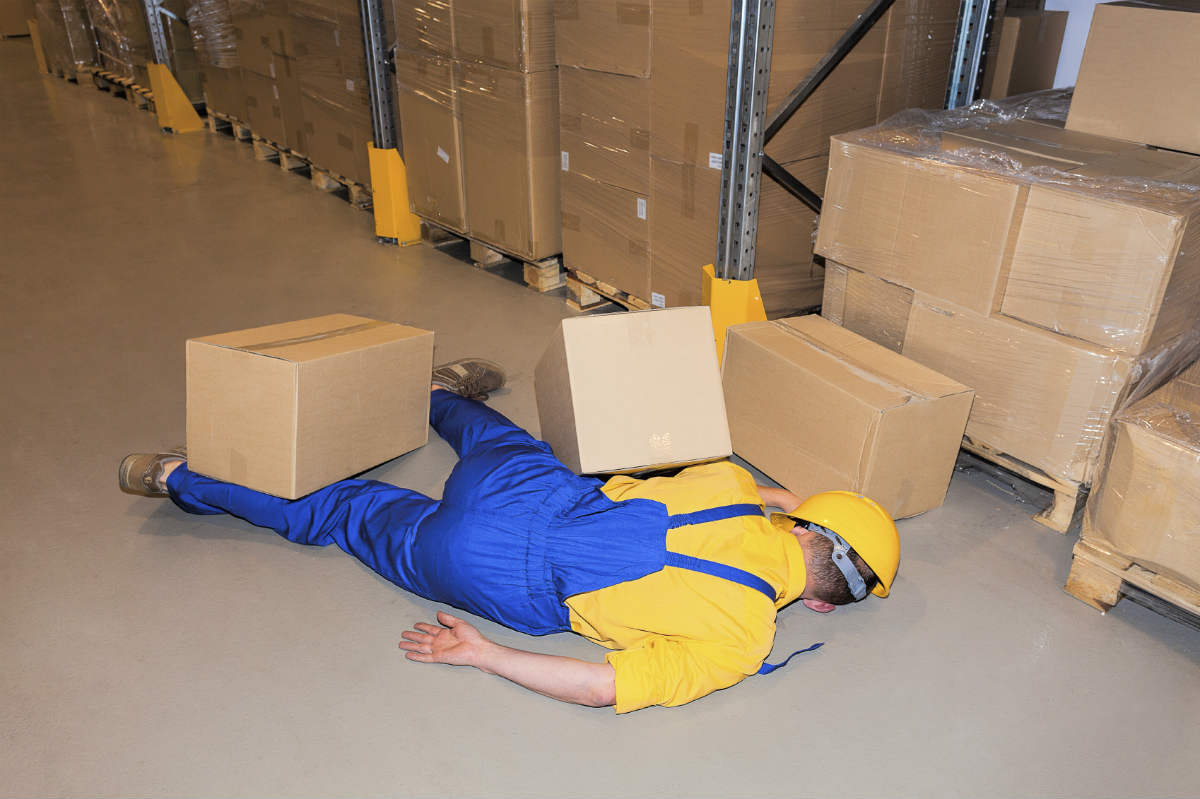Traumatic brain injuries have a lifelong impact on a worker’s ability to work and even perform normal daily activities.
 Work-related injuries can be painful and result in long periods of disability. Certain injuries, such as traumatic brain injuries (TBI), have a lifelong impact on a worker’s ability to continue in his or her occupation and even perform normal daily activities. Workers can suffer head trauma in various work-related accidents such as falls from ladders or scaffoldings, motor vehicle accidents, or objects falling on their heads.
Work-related injuries can be painful and result in long periods of disability. Certain injuries, such as traumatic brain injuries (TBI), have a lifelong impact on a worker’s ability to continue in his or her occupation and even perform normal daily activities. Workers can suffer head trauma in various work-related accidents such as falls from ladders or scaffoldings, motor vehicle accidents, or objects falling on their heads.
Regardless of the cause of injury, the effects are often devastating and it is important for workers to understand their right to workers’ compensation benefits. In addition, there may be a third-party responsible for the accident. Our St. Louis injured at work lawyer answers questions that workers have had concerning work-related brain injuries.
FAQ 1 – What are the common types of TBIs that occur in workplace accidents?
The two most common types of TBIs include open head injuries and closed head injuries. Open head injuries involve penetration of the skull and/or brain by an object. Closed head injuries can be serious and life-threatening. A blow to the head during a motor vehicle crash at the worksite can cause the brain to strike against the hard interior of the skull.
An epidural hematoma is a type of closed head injury that occurs when there is hemorrhaging between the dura mater and the skull. This injury could be a result of a blow to the head that causes the arteries to tear. Such injuries may not have any immediate symptoms, but an injured worker may start experiencing neurological symptoms sometime after the injury. In the case of closed head injuries, diagnosis may be delayed, because there is no obvious penetration of external injuries. It is important to report any head injury to the employer and seek medical attention without delay.
FAQ 2 – What symptoms might indicate that the worker has suffered a brain injury?
Serious injuries can result in obvious symptoms such as impaired speech or motor skills and coma. In some cases, it can cause death. Signs of work-related brain injuries include:
- short-term memory loss
- dizziness
- loss of consciousness
- depression or mood changes
- nausea
- confusion
- headaches
- vomiting
- disorientation
FAQ 3 – What benefits is an injured worker entitled to?
If you have suffered a brain injury in a work-related accident, you may be entitled to workers’ compensation benefits. These benefits include medical care, temporary disability payments, and compensation for permanent disability based on the degree of long-term disability.
Work Related Injuries
Work Related ACL Injury
Leg Amputation
Finger Amputation
Ankle Injury
Ankle Replacement
Arthroscopic Surgery
Work Related Arthritis
Accidental Asphyxiation
Work Related Asthma
Avulsion Injury
Back Injury at Work
Back Pain from Work
Lower Back Pain at Work
Chronic Back Pain
Head Injury Internal Bleeding
Internal Bleeding after Injury
Blood Related Illness
Broken Bones
Brain Injuries
Traumatic Brain Injury
Bursitis Work Related
Burn Injury at Work
Electric Burn
Chemical Burn
Calcaneus Fracture
Sudden Cardiac Arrest
Cardiovascular Disease
Carpal Tunnel Work Related
Cartilage Injury
Cervical Disc Replacement
Cervical Fusion
Chronic Illness
Work Related Chronic Pain
Work Related Concussion
Contagious Disease
Work Related COPD
Skin Corrosion
CRPS Disease
Crush Injuries
Cubital Tunnel Syndrome
Work Related Death
Degenerative Bone Disease
Degenerative Disc Disease Work Related
Reflex Sympathetic Dystrophy
Work Related Tennis Elbow
Elbow Injury
Epicondylitis at Work
Work Related Eye Injury
Fibromyalgia
Work Related Foot Injuries
Work Related Injuries to the Hand
Hand Arm Vibration Syndrome
Work Related Head Injury
Closed Head Injury
Open Head Injury
Work Related Hearing Loss
Heart Attack Work Related
Stroke at Work
Heat Stroke at Work
Intracerebral Hemorrhage
Hernia Work Related Injury
Work Related Herniated Disc
Hip Fracture
Hip Replacement
Hip Injuries
Intracranial Injury
Broken Jaw
Work Related Knee Injuries
Knee Fracture
Laceration
LCL Injury
Legionnaires Disease
Ligament Tear
Limb Loss
Lumbar Disc Replacement
Lumbar Fusion
Lumbar Spinal Fusion
MCL Tear
MCL Injury
Meniscus Tear
Work Related Mental Illness
Mesothelioma from Work
Work Related Muscle Problems
Work Related Neck Pain
Work Related Neck Injury
Nerve Damage from Work Related Injury
Neurological Disorders
Occupational Disease
Organ Damage
Pain and Suffering from Work Related Injury
Paralysis
Patella Fracture
Pelvic Fracture
Plantar Fascitis
Pre Existing Work Related Injury
Work Related PTSD
Radiation Sickness
Repetitive Stress Injury
Rhabdomyolysis
Rotator Cuff Tear
Rotator Cuff Surgery
Work-Related Rotator Cuff Injury
Sciatica Work Related
Shift Work Disorder
Shoulder Fusion
Shoulder Impingement
Shoulder Injury
Work-Related Shoulder Pain
Sick Building Syndrome
Skull Fracture
Spinal Cord Injury at Work
Spondylolysis
Sprain at Work
Work-Related Repetitive Strain Injury
Work Related Stress
Stress Fracture
Subdural Hematoma
Work-Related Tendonitis
Lost Tooth at Work
Trigger Finger Work Related
Vertebroplasty
Vision Impairment
Lost Vision at Work
Work-Related Wrist Injuries
